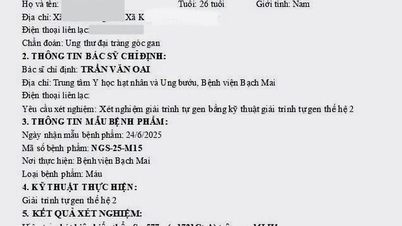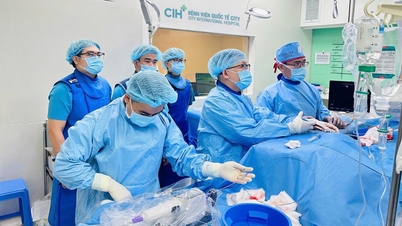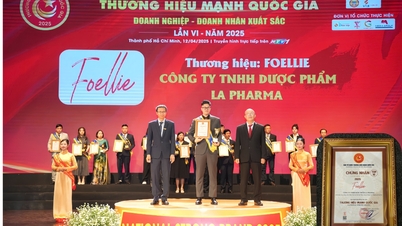 |
| 'Tagging' technology from the field of biochemistry is used in cancer treatment. (Source: SCMP) |
In immunotherapy, immune cells need to receive strong enough signals to detect and destroy cancer cells. However, cancer cells are sophisticated, often "camouflaging" with very sparse amounts of natural signals on their surface, making them difficult for the immune system to detect.
To overcome this obstacle, a group of scientists from the Center for Molecular Cell Science (Chinese Academy of Sciences) applied "labeling" technology from the field of biochemistry to disease treatment.
The team has successfully created a nanozyme - a nano-sized artificial enzyme - that can react when activated by deep red light or ultrasound.
This nanozyme can carry antibodies or ligands that recognize cancer cells, travel through the bloodstream, and accumulate on the surface of malignant cells. When commanded by light or ultrasound, the nanozyme will clearly "label" cancer cells, turning them into specific targets for the immune system.
Scientists also injected a special molecule called BiTE (Bispecific T-cell Engager) into the mice. This molecule not only marks the target but also activates the immune system's T cells to attack cancer.
According to scientists, "this labeling can simultaneously trigger systemic immunity and form a long-term memory, as if the body had just been injected with an 'anti-tumor vaccine'."
In a research report published in the journal Nature on September 11, the research team confirmed that this method has shown positive treatment results on both mouse tumor models and clinical tumor samples cultured in an artificial environment in the laboratory.
Experts hope this discovery will open up a new path for a smarter, more effective generation of immunotherapies, bringing great hope to cancer patients in the future.
Source: https://baoquocte.vn/pha-vo-chieu-tro-nguy-trang-cua-te-bao-ung-thu-327523.html






































![[Photo] Off-road racing: Adventure sport, attractive tourism product](https://vphoto.vietnam.vn/thumb/1200x675/vietnam/resource/IMAGE/2025/9/14/45123bd29c884b64934da038d947d344)


































































Comment (0)